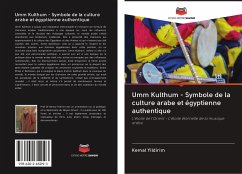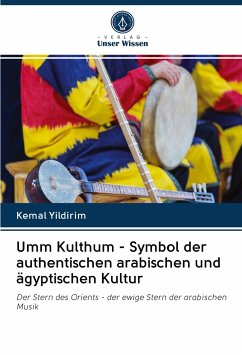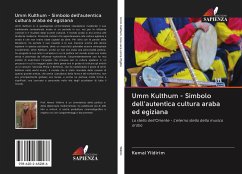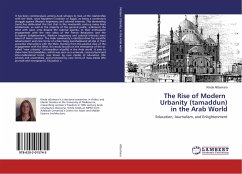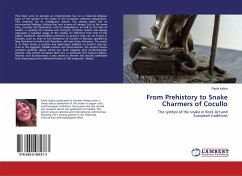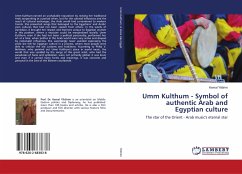
Umm Kulthum - Symbol of authentic Arab and Egyptian culture
The star of the Orient - Arab music's eternal star
Versandkostenfrei!
Versandfertig in 6-10 Tagen
41,99 €
inkl. MwSt.

PAYBACK Punkte
21 °P sammeln!
Umm Kulthum earned an unshakable reputation by revising her traditional Arab songwriting at a period when, but for the colonial influences and the result of cultural exchanges, the Arab world had surrendered to modern trends. She presented songs that belonged to the Egyptians' and Arabs' own cultures that had not been copied from others. In the words of Danielson, it brought her respect and manners unique to Egyptian women in this position, where a musician could be marginalized socially. Umm Kulthum, even if she had not been a political personality, performed her art at a time, when politics ...
Umm Kulthum earned an unshakable reputation by revising her traditional Arab songwriting at a period when, but for the colonial influences and the result of cultural exchanges, the Arab world had surrendered to modern trends. She presented songs that belonged to the Egyptians' and Arabs' own cultures that had not been copied from others. In the words of Danielson, it brought her respect and manners unique to Egyptian women in this position, where a musician could be marginalized socially. Umm Kulthum, even if she had not been a political personality, performed her art at a time, when politics in the Arab world were very active and shaped by nationalist influences. She surprisingly never avoided expressing the pride she felt for Egyptian culture in a process, where most people were able to criticize the old customs and traditions. According to Philip V. Bohlman, who pointed out Umm Kulthum's place in world music, the world that was recalled by the songs of this great artist, who had the paradoxes of fame and symbolism, were not primarily global; it was local, and even if it carried many forms and meanings, it was concrete and personal in the lives of the listeners worldwide.




